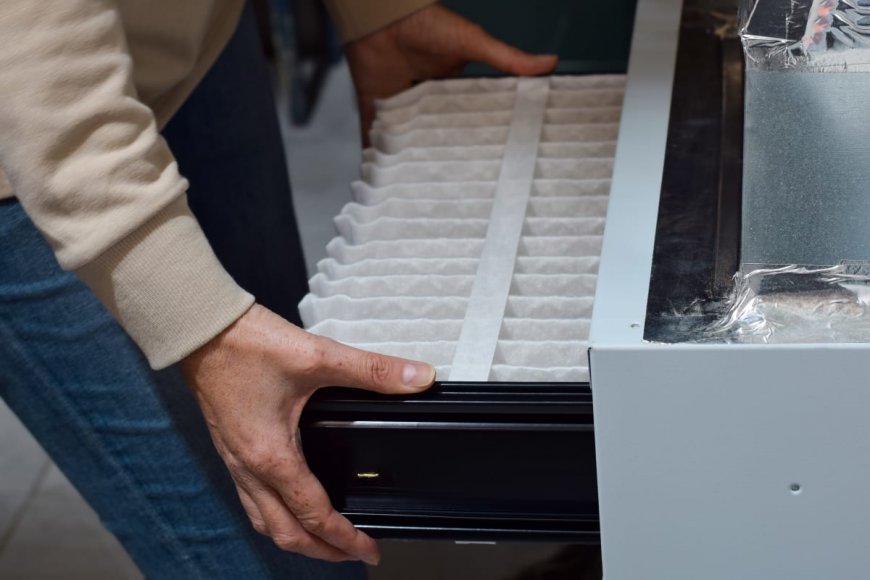What To Now About Air Purifiers, HEPA And Keeping Your Home Safe
How to get ready for the next air quality calamity.

At the moment, much of New York and New Jersey is dealing with an air quality crisis, owing to more than 400 Canadian wildfires.
Authorities have urged people to limit their outside exposure, flights have been delayed or canceled outright, Broadway shows have been canceled and social media is filled with eerie screen shots of yellow skies and words of encouragement (or otherwise) from West Coast residents who have been living with with rolling ecological disasters for the past decade.
Don’t Miss: American Airlines Is Giving Its Elite Customers a Free Upgrade
Climate scientists have already warned us that massive smoke clouds, and the harmful particles they bring, will likely be an ongoing fixture of our lives in the coming years.
As part of your social media searches, you might have come across HEPA filters, which stand for "high efficiency particulate air” filters, known for their ability to remove harmful toxins. Some HEPA-based HVAC (Heating, ventilation, and air conditioning) systems can be quite expensive, and it's not recommended you add them to your window air conditioning unit.
To clear up what exactly a HEPA does, and what other options are available for people who can’t afford a new system, and what other practical steps you can take to prepare your home in the event of another airborne toxic event, we talked to Keith Lambert, a 30-year pollution control veteran, who has participated in air cleaning projects for companies ranging from Tesla to Kikkoman, to Cargill, to Lockheed Martin.
At the moment, many parts of New York and New Jersey are suffering from poor air quality. What is the first step people need to take to secure their home against the particulate matter that is being created by the Canadian wildfires?
- Stay indoors as much as possible.
- Check and if needed replace your home HVAC filters (More often).
- Look into getting indoor HEPA air filters (buy extra filter replacements).
- Look into getting air masks (N or KN95) or respirators.
Could you explain what exactly particulate matters are, and how does HEPA filter them out of the air?
Particulate matter is made up of all types of things; ash, pollen, dust, skin, plastics, and so on and so on. Particulate matter is literally matter of any organic or inorganic nature that can get entrained in air streams. We humans are meant to breathe in air which is mostly nitrogen and oxygen, not particulate. A HEPA filter is basically a high velocity capture device, typically known as a filter. HEPA filters when used with a fan (air moving device) allow large volumes of air to be cleaned.
If someone can't afford a HEPA filter, or if they live in an apartment that can only support window units, what further steps can they take? Is there a way to upgrade a window unit so that it is more effective at filtering out particles?
If a person only has a window unit AC system I would say it’s time to look into “McGyvering it” Look into purchasing a low cost thin carbon filter that you can install on or over the inlet or exhaust of the AC unit. You can make some effective filtering with a little imagination.
There's videos online of people taping up the cracks in their windows. Is this actually effective? If so, what advice do you have for how to approach it?
Taping up windows etc will keep those particular sources at bay, particulate and smoke get into homes mostly from small cracks , opening and closing doors, etc. In reality, you want your home to have a positive pressure meaning when you open a door the air pressure in the home is greater than the pressure outside so you’re blowing air out when a door is opened vs sucking air in.
Do the air filters that people use for dust and other allergens do anything to filter out smoke particles? If so, which stand alone filters might be best?
Smoke is very hard to filter out as you have two portions, the particulate matter and the odor that comes along with it. Capturing the particulate matter is the easy part, but capturing or absorbing the odor is the difficult part, and filter life is directly related to inlet concentrations of smoke
Should New York and New Jersey residents resign themselves to smoke alerts being a semi-regular occurrence, the way it is in California? If so, what steps should they take to be prepare next time?
California is essentially a desert, so often when fires occur you have so much dry brush things can get out of hand fast. The NY & NJ region as well as the regions in Canada that are causing this issue are not desert areas but continued dry seasons will intensify the likelihood. I think it’s time for everyone to look at the climate with eyes wide open and start thinking that these new extremes may actually be our new norm.
What's Your Reaction?



























































